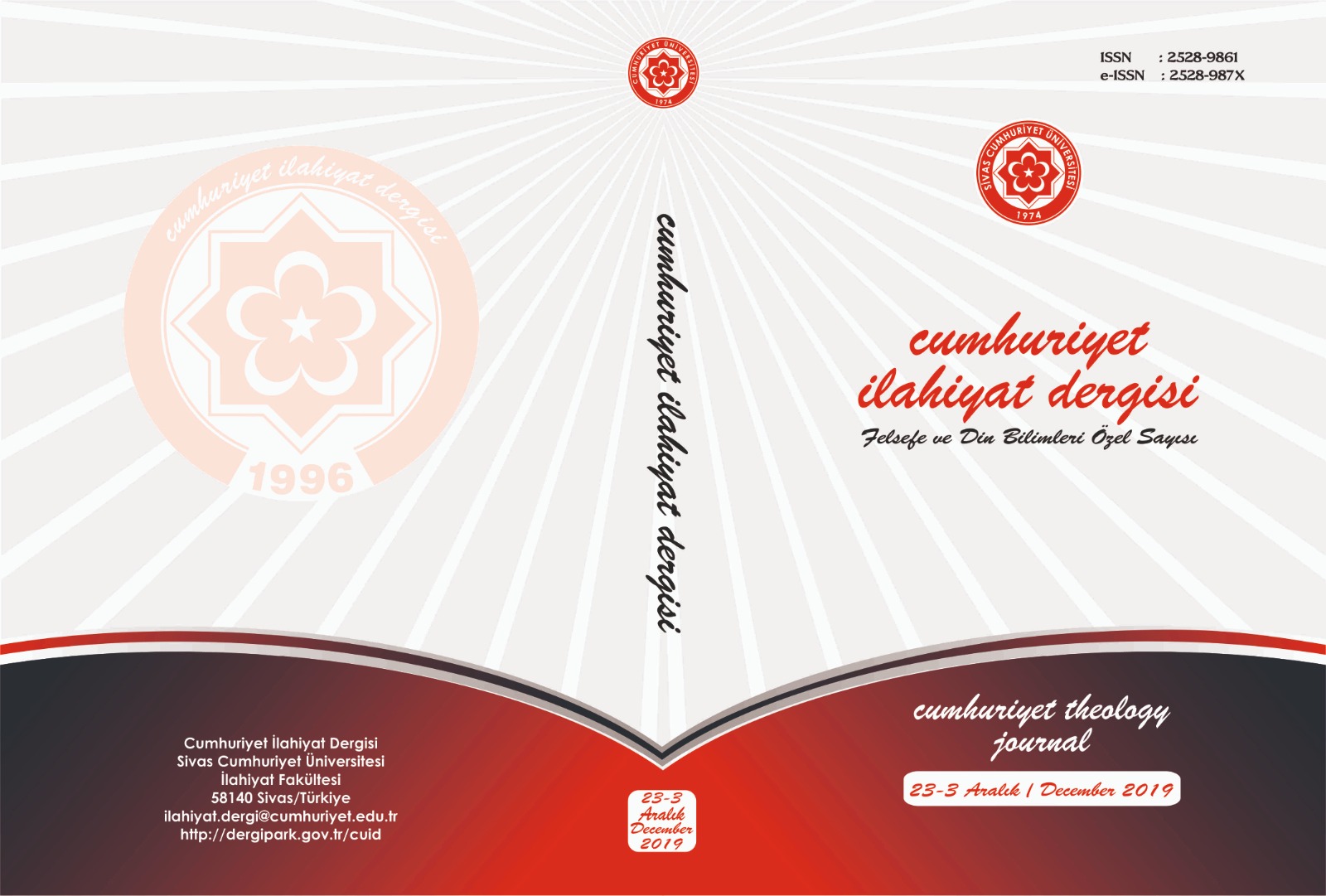İbn Haldûn’un Ahlâk Düşüncesi Bakımından Money-Hedonizm
Money-Hedonism from Ibn Khaldūn’s Notion of Morality
Author(s): Muhammet Caner IlgaroğluSubject(s): History, Philosophy, Theology and Religion, Social psychology and group interaction
Published by: Cumhuriyet Üniversitesi İlahyat Fakültesi
Keywords: History of Philosophy; Ibn Khaldūn; Badāwa; Ḥaḍāra; Morality; Money-Hedonism;
Summary/Abstract: According to Ibn Khaldūn, man is a social entity deeply influenced by the geo-economics-politics of the environment in which he lives. The effect is seen as so strong that nearly all of these structures in their relationship to human beings are dominated by it. In this system, we see human beings as a creature who is both able to adapt himself to the environment and able to evolve in this harmony. From the perspective of Ibn Khaldūn, man cannot be evaluated or defined separately from the environmental conditions, the technique and architecture he has developed. Ibn Khaldūn sees the primary source of this change to be the desire to make life both more prosperous and bearable. Therefore, the most natural motivations that affect man’s desire to alter the natural world are the environmental challenges that he encounters. The challenges that are imposed upon man in the natural world are those that have led to human progress. From badāwa (nomadic society) to ḥaḍāra (sedentary society) and so to the ceaseless drive of human progress that has served to make life more endurable, every effort in this sense leads to a physical and moral loosening as the incessant struggle to survive that defines human existence is made more bearable. Physical slack by breaking the resistance of man to resist the environmental conditions; and moral looseness by making man more vulnerable to the temptation of desires, pleasures and welfare that are the cause of moral dilemmas. Ibn Khaldūn’s moral thought with its social, political, and other fields of application are all contexts that enable an understanding of the devaluation of money-hedonist morality in all ways. This article aims to analyze the social, political and economic dilemmas and challenges that the capitalist, consumption-based money-hedonist morality (obesity, social media addiction, consumption, and moral devaluation in the face of financial, virtual and imagined valuations, etc.) from the perspective of Ibn Khaldūn.
Journal: Cumhuriyet İlahiyat Dergisi
- Issue Year: 23/2019
- Issue No: 3
- Page Range: 1331-1347
- Page Count: 17
- Language: English

